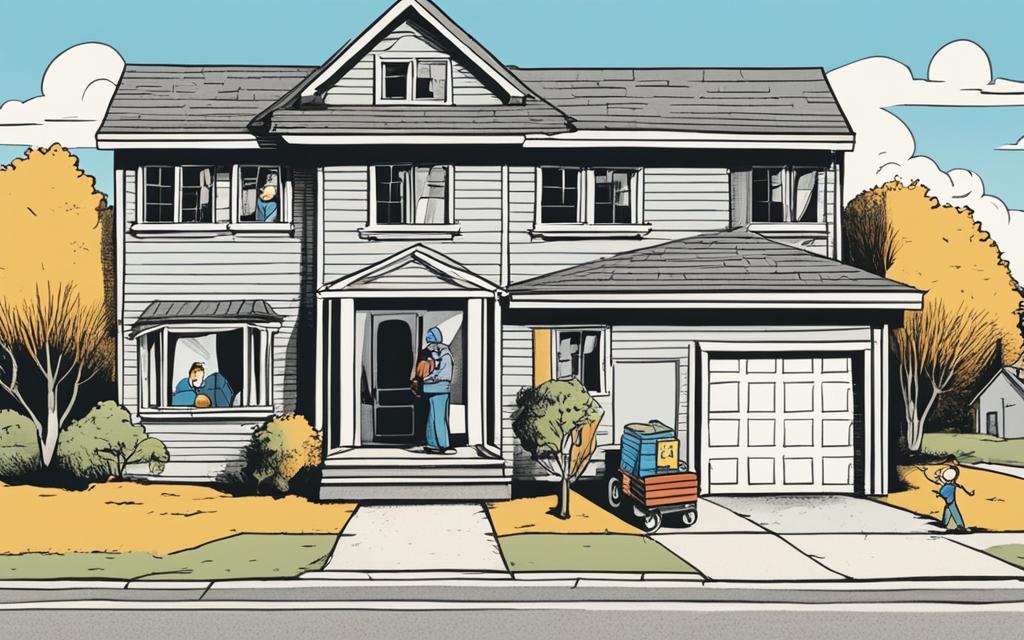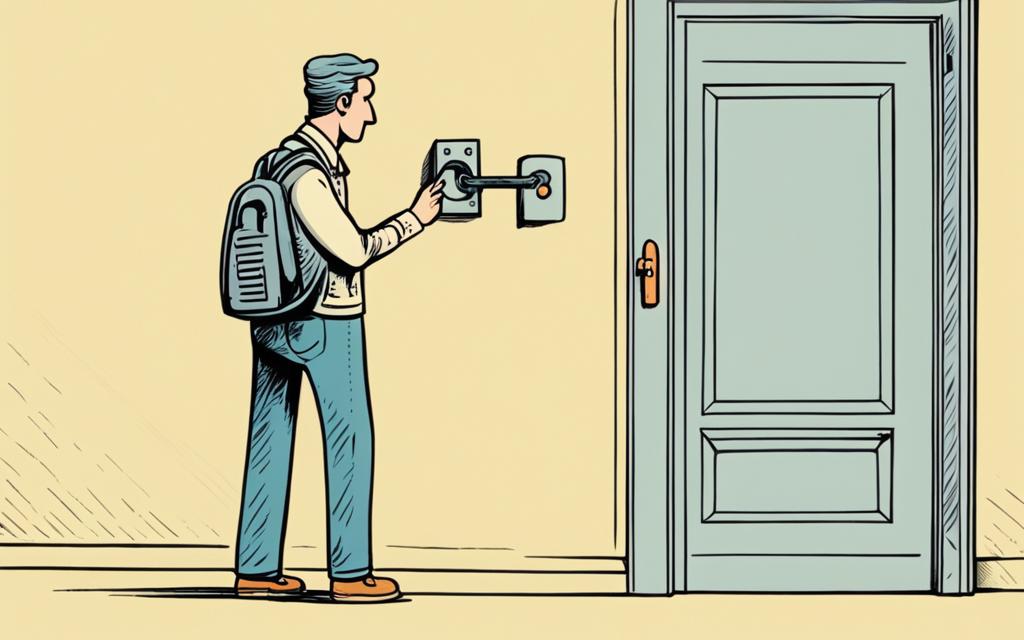When you’re struggling to keep up with loan payments, you may start to wonder what options are available to you. However, it’s just as crucial to understand what options will become unavailable if you fall behind on those payments. In this article, we’ll explore the loan payment options that become off-limits due to late payments, as well as the consequences of falling behind on loan payments and loan delinquency implications.
It’s essential to understand these consequences and implications to avoid getting trapped in a cycle of debt and loan default, which can further damage your financial well-being. Let’s dive into it and learn more about what option will not be available if you are behind on loan payments.
Understanding Loan Payment Options
As a borrower, it’s crucial to understand the various loan payment options available. Making timely payments is vital to maintaining a good credit score and avoiding negative consequences of falling behind on loan payments.
There are several options for making loan payments, including automatic payments, online payments, check payments, or phone payments. Automatic payments are a convenient way to ensure timely payments, while online payments offer flexibility and convenience. However, whichever payment option you choose, it’s crucial to ensure that payments are made on time.
Consequences of Falling Behind on Loan Payments
Falling behind on loan payments can have severe consequences. Late fees and increased interest rates can make it more challenging to pay back the loan. Additionally, missing payments can damage your credit score, making it challenging to secure future credit. Late or missing payments may also result in potential legal actions that lenders may take, such as wage garnishment, repossession of property, or even foreclosure.
It’s essential to be proactive if you’re experiencing financial hardship and talk to your lender about possible alternative payment options before falling behind on payments. In some cases, your lender may be able to work with you to develop a more manageable repayment plan.
Consequences of Falling Behind on Loan Payments
When you fall behind on loan payments, it can have significant consequences that can harm your financial situation. Loan delinquency can trigger a cascade of negative effects, including late fees, increased interest rates, and damage to credit scores.
Late fees can quickly add up and make it even more challenging to make timely payments. Late payments may also trigger increased interest rates, making it even more costly to pay off the loan in the long run. Additionally, loan delinquency can also damage your credit score, making it harder to secure future loans or credit cards with favorable terms.
Furthermore, when borrowers default on loans, lenders may take legal action against them. This can include wage garnishment or even seizing personal property as collateral. In extreme cases, the borrower may even be forced to declare bankruptcy, which can have far-reaching financial consequences that can impact their future for years to come.
Overall, the consequences of falling behind on loan payments can be severe and far-reaching. It’s essential to make timely payments, communicate with the lender if there are financial difficulties, and explore alternative repayment strategies to ensure financial stability.
Unavailable Options Due to Loan Delinquency
When you fall behind on loan payments, you may lose access to certain options that were previously available to you. Loan forbearance, refinancing, and loan modifications are some of the specific alternatives that may become unavailable due to loan delinquency.
Loan forbearance is a temporary pause on your loan payments, granting you more time to get back on track. If you are behind on loan payments, however, you may not be eligible for forbearance. Similarly, refinancing or loan modification may allow you to change the terms of your loan or reduce your monthly payments, but it may not be an option when you are already behind on loan payments.
It’s essential to understand the implications of loan delinquency, as it can also lead to loan default consequences. In the next section, we’ll explore the potential consequences of falling behind on loan payments and the impact it can have on your financial situation.

Understanding Loan Forbearance Eligibility
When facing financial hardship, loan forbearance can provide temporary relief by allowing borrowers to pause or reduce their loan payments. However, not all borrowers qualify for forbearance. Eligibility depends on different factors, including the type of loan, lender policies, and the borrower’s financial situation.
Typically, borrowers are eligible for forbearance if they’re experiencing a financial hardship, such as job loss or a medical emergency, and they’re unable to make their loan payments. In some cases, lenders may require borrowers to provide evidence of their financial hardship, such as recent pay stubs or medical bills. It’s crucial to communicate with your lender to understand the specific requirements for loan forbearance.
Unfortunately, falling behind on loan payments can impact your eligibility for forbearance, as it may indicate a higher risk of default. Additionally, loan forbearance is not a permanent solution, and interest may continue to accrue during the forbearance period, potentially leading to higher overall loan costs over time.
It’s important to consider all potential consequences of missed loan payments and explore alternative repayment strategies before considering forbearance. However, if you’re struggling to make your loan payments due to financial hardship, loan forbearance may be a viable option to consider.
Exploring Loan Repayment Alternatives
When you fall behind on loan payments, it’s essential to consider alternative ways to manage your loan repayments. Missing a payment or defaulting on a loan can result in severe consequences, such as increased interest rates, damaged credit scores, and potential legal actions taken by lenders. Therefore, exploring loan repayment alternatives can help you avoid these outcomes.
One potential alternative is income-driven repayment plans, which adjust your monthly payments based on your income and family size. These plans can extend your repayment period but can make your monthly payments more manageable.
Consolidation is another option, which involves taking out a new loan to pay off multiple loans. Consolidation can simplify your repayment process by combining multiple payments into a single payment with a potentially lower interest rate.
Seeking assistance from credit counseling agencies can also provide you with valuable guidance and education on managing your finances and repayment options. They can also help you negotiate with lenders and create a budget to pay off debts.
Exploring these alternatives and seeking help when needed can make a significant difference in your ability to overcome financial challenges and manage your loan repayments effectively.
Seeking Help to Avoid Loan Default
If you’re experiencing difficulty making payments on your loans, seeking help can be a crucial step to avoid loan default consequences. However, it’s essential to understand the implications of loan delinquency and possible outcomes of falling behind on loan payments before seeking help.
Effective communication with your lender is crucial to explore potential options that can help you avoid loan default. It’s also important to understand your rights as a borrower and explore alternatives, such as deferment, forbearance, or refinancing.
Seeking assistance from credit counseling agencies and financial advisors can also be a viable option to develop a suitable repayment plan and avoid loan default consequences. These professionals can work with you to create a manageable budget, negotiate with lenders on your behalf, and provide insights on potential alternatives.
Conclusion
Falling behind on loan payments can be financially devastating for borrowers. When you fall behind on loan payments, several options can become unavailable to you. It’s crucial to understand loan payment options, the consequences of falling behind, and the potential implications of loan delinquency. Late fees, increased interest rates, damage to credit scores, and potential legal actions are among the consequences of missed loan payments.
When you’re behind on loan payments, certain options such as loan forbearance, refinancing, or loan modifications may no longer be available. However, borrowers facing financial hardship can explore alternative ways to manage their loan repayments, such as income-driven repayment plans, consolidation, or seeking assistance from credit counseling agencies.
Remember, communication with your lender and understanding your rights as a borrower can also go a long way in avoiding the point of loan default. Seeking help when needed can make a significant difference in your ability to overcome financial hardships and maintain your financial well-being.

